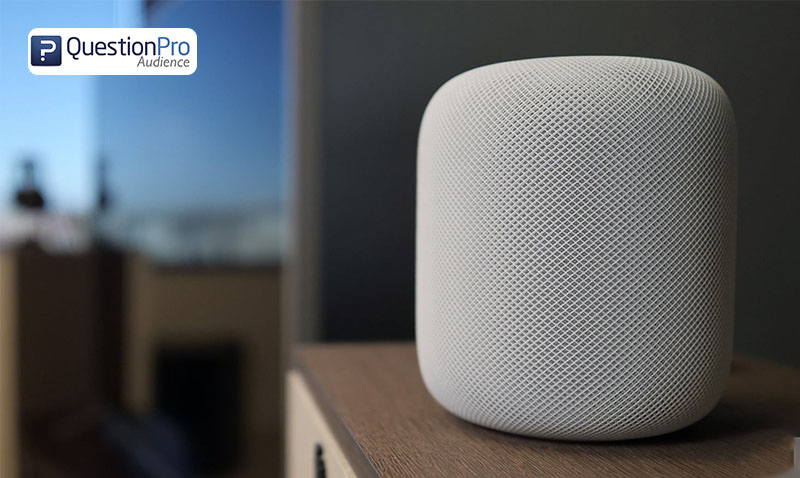 Reading Time: 2 minutes read
Reading Time: 2 minutes readApple’s HomePod has arrived. On February 9, 2018, the $349 HomePod debuted in the US, UK and Australia. Apple, who is used to being the first on the technology scene, is the late-comer to the voice assistant speaker market, launching three years after Amazon’s Echo. And as the first consumer reviews come streaming in, whether it was worth the wait is up for debate.
While Apple CEO Tim Cook insists the HomePod isn’t competing with those other voice activated speakers (Amazon Echo, Google Home, Sonos One), it’s hard for consumers not to compare them. According to Cook, the speaker is meant to fill the void in the market of a quality audio experience. And it seems to do that well; with an Apple A8 chip, a large woofer (a loudspeaker designed to reproduce low frequencies) and seven tweeters, by all reports, the HomePod does provide a good home music speaker.
Now for it’s drawbacks. First, and perhaps most importantly for consumers, is it’s price. At $349, it’s the most expensive voice activated speaker on the market—by far. Amazon Echo costs $180, Google Home is $129, and a Sonos speaker is $199. Are consumers willing to pay almost double for the HomePod? Apple’s argument is that the HomePod is worth the cost because it combines smart features and great sound, but the jury is still out. Second, the only music service supported by the HomePod is Apple Music. You can rig it to work with Pandora or Spotify, but it won’t respond to voice-based commands to manage those services. Third, —and a big selling point for the other voice activated devices on the market—is the inability to order pizza, hail an Uber, or even make a phone call.
According to a recent study conducted by QuestionPro Audience, 54% of smart speaker users are concerned about security and privacy. iPhone Siri has the capability to understand only the owner of the phone, but that technology was not transferred to the HomePod. HomePod Siri will respond to anyone who speaks to it, which may cause potential privacy issues if someone else asks to listen to the owner’s messages. On the other hand, both Amazon and Google store your audio data for a period of time, but the HomePod anonymizes your data, so it cannot be traced back to your device.
Consensus: the HomePod definitely isn’t for everyone, but for those who are already tied into the Apple ecosystem, and are looking for a great sound system to play Apple Music, the HomePod won’t disappoint.
QuestionPro Audience provides our clients with access to more than 22 million active respondents, who are strategically recruited to participate in quantitative research and live discussions. By implementing various recruitment methodologies, we make sure to provide the right kinds of respondents for your research. With industry knowledge and innovative tools, QuestionPro Audience always meets the rigorous demands of our clients. Contact us for your next research project.




















